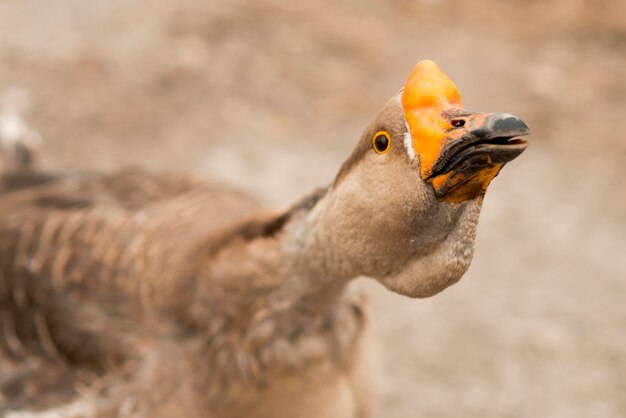Fascinating Facts about Ducks

Ducks are excellent swimmers and can easily navigate through both still and flowing water.
Male ducks are called drakes, while females are known as hens.
Ducks have a gland near their tail called the preen gland, which produces oil to keep their feathers waterproof.
Ducks have webbed feet that allow them to paddle effortlessly through water.
Some duck species, like the Wood Duck, have colorful plumage that makes them appear almost glamorous.
Ducks can fly for long distances during migration, sometimes travelling thousands of miles.
Ducks belong to the bird family Anatidae, which also includes geese and swans.
Ducks have a unique way of eating – they filter their food out of water by straining it through their bill.
Some duck species, like the Muscovy duck, can perch and roost in trees.
The smallest duck species is the Brazilian teal, which is about the size of a pigeon.
Ducks communicate through a variety of sounds, including quacks, whistles, and grunts.
Ducks have a wide range of diets, which can include anything from plants to insects, fish, and even small mammals.
Ducks have a keen sense of hearing and can detect sounds from long distances.
Ducks have a specialized beak that allows them to dig and find food underwater.
Ducks have an average lifespan of 5 to 10 years in the wild, but can live much longer in captivity.
Ducks are highly adaptable and can be found in almost every type of water source, from lakes to rivers and wetlands.
Fascinating Facts about Ducks part 2
Some ducks, like the Harlequin duck, prefer fast-flowing streams and rapids as their habitat.
Ducks have a third eyelid, called a nictitating membrane, which helps protect their eyes while swimming.
Ducks have excellent vision both above and below water, allowing them to spot predators and food.
Ducks have a high body temperature, which helps them stay warm even in cold water.
Ducks are monogamous and form strong pair bonds that can last for several years.
Ducks are good parents and take great care of their ducklings, protecting them from predators and teaching them how to survive.
Ducks have different types of feathers, including fluffy down feathers for insulation and stiff flight feathers for flying.
Ducks have a unique anatomy that allows them to float effortlessly on water while keeping their body dry.
Ducks molt their feathers once a year, during which time they are unable to fly and must find safe shelter.
Ducks have been domesticated for thousands of years and are commonly kept as pets and for their eggs and meat.
Ducks have a gland near their eyes that produces a protective membrane to keep their eyes lubricated in water.
Ducks have a complex mating ritual that involves displays of courtship, preening, and vocalizations.
Ducks can sleep with one eye open, allowing them to spot potential threats while resting.
Ducks have a layer of fat under their skin, called the subcutaneous fat, which provides insulation and buoyancy.
Ducks have a serrated beak that helps them catch and hold onto slippery prey.
Ducks have an amazing ability to navigate, using celestial cues, the sun, and even the Earth’s magnetic field.
Ducks have a specialized tongue that helps them filter water while they feed.
Ducks have a wide range of colors and patterns in their feathers, including vibrant greens, blues, and yellows.
Ducks have a unique ability to change the shape of their beak depending on the type of food they are eating.
Ducks are social animals and often gather in large flocks, especially during migration.
Ducks have a layer of down feathers that provides insulation and keeps them warm in cold water.
Ducks have a strong sense of smell, which helps them find food sources both on land and in water.
Ducks have a strong sense of community and will often help each other find food and stay safe.
Ducks have a specialized digestive system that allows them to digest food that is high in cellulose, like plants.
Ducks have a unique courtship behavior called head-throwing, where the male repeatedly throws his head back during displays.
Ducks have a specialized blood circulation system that helps them regulate their body temperature while swimming in cold water.
Ducks have an amazing sense of direction and can remember their migration routes even after being away for months or years.
Ducks have a highly efficient respiratory system that enables them to breathe both in the air and water.
Ducks have the ability to quickly take off from water and land due to their powerful wing muscles.
